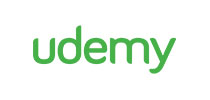در حال حاضر محصولی در سبد خرید شما وجود ندارد.

Advanced hands-on bootcamp of MLOps with MLFlow, Scikit-learn, CI/CD, Azure, FastAPI, Gradio, SHAP, Docker, DVC, Flask..
در این روش نیاز به افزودن محصول به سبد خرید و تکمیل اطلاعات نیست و شما پس از وارد کردن ایمیل خود و طی کردن مراحل پرداخت لینک های دریافت محصولات را در ایمیل خود دریافت خواهید کرد.

✨ تا ۷۰% تخفیف با شارژ کیف پول 🎁
مشاهده پلن ها